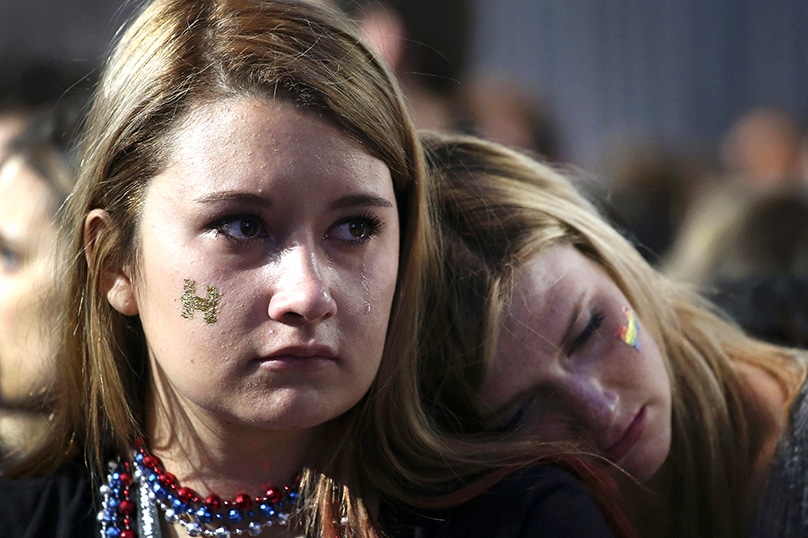
In season four of The West Wing, two of the President’s staffers are arguing about the communication strategy for the upcoming presidential election. Toby Zeigler is eager to highlight the flaws in the opposing candidate, while Josh Lyman thinks that the preferable choice is to focus on the strengths of their own candidate.
At the climax of the argument, Josh exclaimed: “I want to win. You want to beat him, and that’s a problem for me. Because I want to win.” He perfectly summed up not only the difference between their two approaches but also, I suggest, the reason why this latest US presidential campaign was so different to any other.
Let’s be honest. I don’t think there were many people who really wanted Donald Trump to win, but there were lots who wanted to see Hillary Clinton lose. And while I think there were some genuine dyed-in-the-wool Hillary fans, I think that the majority of those who supported her did so out of their hatred or fear of Trump.
The rhetoric surrounding this election was much less about championing the suitability of one person than it was about proclaiming the serious flaws of the other.
It was a rejection of not only the candidate, but of what they appear to represent. It was much more a battle of ideologies than of the individuals. And when you’re engaging in a cultural battle, you tend to fight a lot harder.
I’ll use my own reaction as an example. Three weeks ago, I wrote about the flaws of each candidate and in particular, the common theme of the rejection of human dignity which they shared.
In that column, I said that Trump was vulgar, pro-death penalty, pro-gun, anti-immigration and anti-immigrant, anti-Islamic and fails to uphold and affirm the dignity of women and the poor. (By the way, a person who doesn’t believe in religious freedom for Muslims doesn’t believe in religious freedom full stop, but that’s another column.)
Trump was by no means the ideal or even a good or acceptable candidate. But as the votes were being counted and the Trump victory was becoming increasingly likely, I got caught up in the moment and was more excited about his victory than I had been in any election result since Guy Sebastian won Australian Idol.
I was happy, not at the election of President Trump, but at the dramatic defeat of the standard bearer for the progressive Left. I was thrilled that the tactic of shutting down debate with cries of bigotry, racism, sexism, Islamophobia, homophobia, transphobia and the like failed – and on the biggest stage in the world.
I felt vindicated in seeing pollsters and opinion makers (especially the media) who had taken a Hillary victory for granted unable to fathom or explain the Trump victory, so gloriously exposing the intellectual laziness which has been a defining characteristic of their work for so long. I was overjoyed that those who tell us that there is just one “acceptable” opinion and who dismiss contrary viewpoints as “extreme” were dealt a decent serving of reality by a basket of deplorables.
I was pleased that so many Americans had ignored the near-unilateral endorsement of Hillary by the Hollywood elite and the celebrity class when casting their vote, because it reinforced my hope that when a plebiscite on marriage is held (and it must be held), that the majority of Australians will do the same and marriage will be protected in this country. (And I must confess just a little delight in seeing so many millennials crying about not getting their way.)
In the space of three weeks, my view had changed dramatically. I am alarmed at how easily it changed, and how I barely even noticed. It’s not that I wanted Trump to win, but that I wanted to see those who opposed him defeated.
The night after the election, a good and wise friend explained to me that things like this happen when we replace the truth with our chosen cause. Even if our cause is good and our intentions honourable, we can lose sight of the truth. And Truth, he reminded me, is a Person.
As Catholics, we can feel like we are constantly in battle; fighting the culture wars in the midst of an increasingly secular world. And of course we want to win.
We want the Truth to reign, but hopefully in a way which results in the conversion – and not the defeat – of those who oppose it. If we find ourselves caring more about the “other side” losing than about “our side” winning, then it is a good indicator that we are pursuing ideology instead of Truth.
(Hyperlinks added by The Catholic Weekly)
